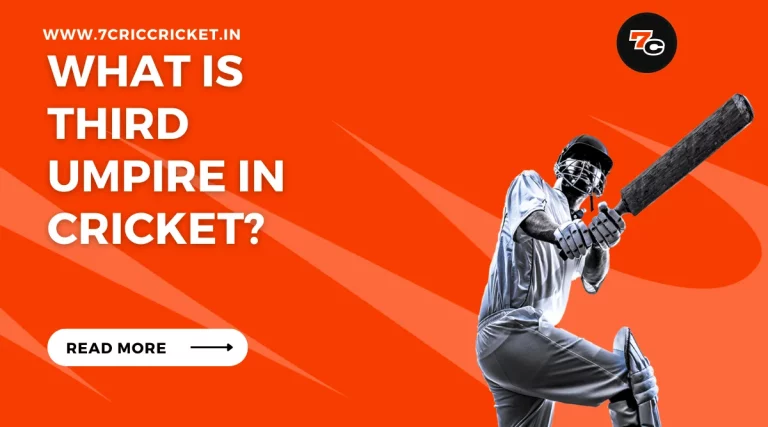What Is Match Referee in Cricket?
In the world of cricket, the role of the match referee holds significant importance in ensuring fair play and upholding the spirit of the game.
This article explores the responsibilities and authority of match referees, their duties during a cricket match, as well as the penalties for code of conduct violations.
Get up to ₹20,000 Bonus Every Week!
Get up to ₹20,000 Bonus Every Week!
- UPI, Paytm, gPay & PhonePe withdrawals
- Fast deposits with UPI
- 450% Bonus up to ₹1,000,000
By maintaining an unbiased and detail-oriented approach, we aim to shed light on the crucial role match referees play in the integrity and success of the sport.
Key Takeaways in This Article
ShowAppointment and Authority
The appointment and authority of a match referee in cricket are determined by the governing body of the sport.
The appointment process involves careful consideration of the referee’s experience, qualifications, and knowledge of the game.
The governing body ensures that the match referee hierarchy is well-defined, with clear guidelines for promotion and succession.
This ensures that only competent and impartial referees are appointed to officiate matches.
The appointment process begins with the governing body identifying potential candidates who meet the required criteria.
These candidates are then assessed through a rigorous selection process, which may include interviews, written exams, and practical assessments.
The governing body aims to select match referees who have a deep understanding of the laws, regulations, and spirit of the game.
Once appointed, match referees are given the authority to enforce the rules and regulations of the game.
They have the power to impose penalties, issue warnings, and make decisions that impact the outcome of a match.
Their role is crucial in maintaining discipline on the field and ensuring fair play among the teams.
In the subsequent section, we will explore the match referee’s role in ensuring fair play and upholding the integrity of the game.
Role in Ensuring Fair Play
To ensure fair play in cricket, the match referee plays a crucial role by overseeing the conduct of players and teams during matches. Here are three key aspects of their role in ensuring fair play:
- Role in resolving conflicts: The match referee acts as a neutral authority figure who steps in to resolve conflicts that may arise during a match. They have the power to penalize players or teams for any breach of the rules or unsportsmanlike behavior. By addressing conflicts promptly and fairly, the match referee ensures that the game continues in a spirit of fairness and sportsmanship.
- Impact on team dynamics: The match referee’s presence has a significant impact on team dynamics. Players are aware that their actions are being closely monitored, which can influence their behavior and decision-making on the field. The referee’s impartiality and adherence to the rules create a level playing field for all teams, fostering an environment where fair competition can thrive.
- Upholding the spirit of the game: The match referee plays a vital role in upholding the spirit of the game. They ensure that players compete within the boundaries of fair play, promoting respect for opponents, umpires, and the game itself. By maintaining the integrity of the match, the referee safeguards the reputation and values of cricket as a sport.
The match referee’s role in ensuring fair play is essential for maintaining the integrity and reputation of cricket as a sport.
By overseeing player conduct, resolving conflicts, and upholding the spirit of the game, they contribute to a fair and competitive environment.
Now, let’s delve into the specific duties performed by match referees during a cricket match.
Duties During a Cricket Match
During a cricket match, the match referee is responsible for overseeing various duties to ensure fair play and maintain the integrity of the game.
One of the key responsibilities of the match referee is to oversee the decision-making process.
They closely monitor the actions and decisions of the on-field umpires, ensuring that all decisions are made in accordance with the laws of the game.
The match referee plays a vital role in resolving disputes that may arise during the match.
They act as the mediator, listening to the concerns of both teams and making impartial judgments based on the rules and regulations of the game.
The match referee’s role in resolving disputes is crucial in maintaining a harmonious and fair atmosphere on the field.
They have the authority to impose penalties, issue warnings, or even suspend players if necessary.
The match referee must remain objective and unbiased, carefully considering all relevant factors before making a decision.
Their presence ensures that the game is played within the spirit of cricket and that any conflicts are resolved in a fair and just manner.
Code of Conduct Violations and Penalties
Code of conduct violations and penalties play a significant role in maintaining discipline and fair play in the game of cricket.
When players or team officials indulge in actions that breach the code, disciplinary actions are taken to uphold the integrity of the sport.
These violations can have a profound impact on team dynamics, as they not only affect the individuals involved but also the overall team morale and performance.
Here are three common code of conduct violations and their corresponding penalties:
- Verbal abuse or sledging: This includes using offensive language, personal insults, or any form of verbal aggression towards opponents. Penalties range from fines to suspension depending on the severity of the offense.
- Dissent towards umpire’s decisions: Showing dissent by arguing or showing disrespect towards the umpire’s decision is not tolerated. Players can be fined or suspended for such actions.
- Physical altercations: Any form of physical aggression towards players, officials, or spectators is strictly prohibited. Players involved in physical altercations can face severe penalties, including lengthy suspensions.
Importance of Match Referees in Cricket
Match referees in cricket play a vital role in ensuring the adherence to fair play and maintaining discipline on and off the field.
They serve as neutral arbiters, responsible for enforcing the rules and regulations of the game, resolving disputes, and upholding the spirit of cricket.
The presence of a match referee has a significant impact on player behavior, as they act as a deterrent against misconduct and unsportsmanlike conduct.
One of the key responsibilities of a match referee is to resolve disputes that may arise during a match.
Whether it’s a disagreement between players or teams, or a contentious decision by the on-field umpires, the match referee steps in to mediate and find a fair solution.
This ensures that conflicts are addressed promptly and impartially, preventing them from escalating and affecting the overall atmosphere of the game.
Moreover, the mere presence of a match referee acts as a deterrent against player misconduct.
Players are aware that their actions are being closely monitored, and any violation of the code of conduct can lead to penalties and disciplinary action.
This fosters an environment of fair play and sportsmanship, where players are more likely to adhere to the rules and respect their opponents.
In summary, match referees play a crucial role in maintaining discipline and fair play in cricket.
Their role in resolving disputes and their impact on player behavior cannot be understated.
By upholding the spirit of the game, match referees ensure that cricket remains a sport that promotes integrity and sportsmanship.
| Role in resolving disputes | Impact on player behavior |
|---|---|
| Mediates conflicts | Acts as a deterrent |
| Impartial decision-making | Promotes fair play |
| Prevents escalations | Fosters sportsmanship |
Conclusion
In conclusion, match referees play a crucial role in ensuring fair play and maintaining the code of conduct in cricket matches.
Up to 75% Reload Bonus on Aviator
Up to 75% Reload Bonus on Aviator
- Easy Sign-Up and Deposits
- Fast deposits with UPI
- 450% Bonus up to ₹1,000,000
They are appointed to oversee the game and have the authority to make decisions and impose penalties for any violations.
Their presence is of utmost importance in upholding the integrity of the sport and ensuring a level playing field for all teams involved.
Frequently Asked Questions (FAQs)
How Are Match Referees Appointed in Cricket?
The appointment process for match referees in cricket involves selecting experienced individuals who possess a deep understanding of the game.
These referees are entrusted with the authority to enforce rules, maintain discipline, and ensure fair play during matches.
What Is the Role of a Match Referee in Ensuring Fair Play in a Cricket Match?
Match referees play a crucial role in maintaining sportsmanship and ensuring fair play in cricket matches.
They are responsible for resolving on-field disputes, maintaining discipline, and upholding the spirit of the game.
What Are the Specific Duties of a Match Referee During a Cricket Match?
The responsibilities of a match referee during a cricket match include ensuring fair play, enforcing rules and regulations, and resolving any disputes that may arise.
They have the authority to make decisions and impose penalties. Match referees are selected based on their qualifications and experience in the game.
What Are Some Common Code of Conduct Violations in Cricket and Their Corresponding Penalties?
The role of match referees in cricket is to ensure fair play and enforce the code of conduct.
They adjudicate on violations such as dissent, misconduct, and ball tampering, imposing penalties such as fines, suspensions, or demerit points.
Why Are Match Referees Considered Important in the Game of Cricket?
Match referees in international cricket play a crucial role in ensuring fair play and maintaining discipline on the field.
They possess the necessary qualifications and criteria to impartially enforce the rules and regulations of the game.








